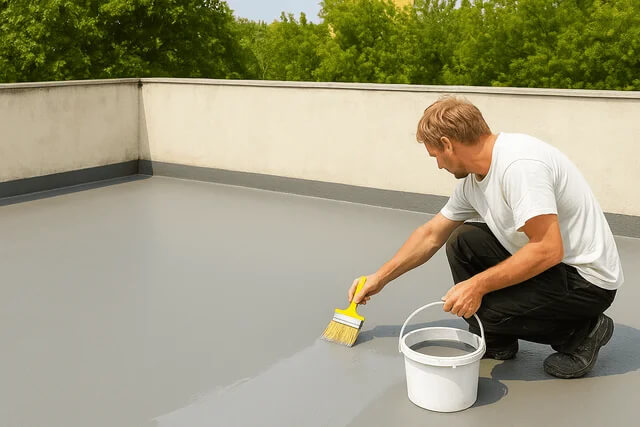The Best Basement Waterproofing Services in Delhi: What Homeowners Should Know

Delhi’s weather is unpredictable—scorching summers, heavy monsoon rains, and damp winters. For homeowners, this cocktail of conditions can turn basements into damp, leaky, and unhealthy spaces. Mold growth, wall cracks, and water seepage are common complaints. That’s why investing in basement waterproofing services Delhi has become less of an option and more of a necessity.
But what should you know before hiring professionals? How do you evaluate service providers, and what methods actually work best in Delhi’s unique climate? This guide covers everything a homeowner should expect—from understanding the causes of basement dampness to choosing the right contractors and solutions.
Why Basements in Delhi Need Special Care
Delhi’s soil composition and fluctuating groundwater levels create the perfect environment for water intrusion. During the monsoon season, basements are particularly vulnerable as rainwater seeps into foundations. In winter, condensation often leads to dampness and mold.
- High groundwater table: Makes basements prone to seepage.
- Old construction methods: Many older homes lack modern waterproofing techniques.
- Urban density: Poor drainage in neighborhoods leads to water accumulation.
This combination means homeowners must proactively secure their basements before problems spiral into expensive repairs.
1. Understanding Basement Waterproofing Services Delhi Offers
When searching for professional help, you’ll come across multiple solutions. Providers typically offer two main approaches:
- Interior waterproofing: Designed to manage water that has already entered the basement. This includes sealants, sump pumps, and drainage systems.
- Exterior waterproofing: Focused on preventing water from entering in the first place by treating the foundation and soil outside the home.
Good contractors will often recommend a hybrid approach based on your specific situation.
2. Inspection and Diagnosis: The First Step
Professional services begin with a detailed inspection. This is where technicians identify:
- Cracks in walls and floors.
- Signs of mold, mildew, and efflorescence.
- Points of water ingress (corners, wall joints, window wells).
- Drainage problems around your property.
This stage is critical because not all dampness is caused by the same issue. For instance, surface seepage requires different solutions than hydrostatic pressure from groundwater.
3. The Techniques Most Commonly Used in Delhi
Contractors offering basement waterproofing services Delhi often use the following techniques:
- Cementitious coatings: A cost-effective method for interior sealing.
- Polyurethane injections: Used to fill cracks and block seepage.
- Bituminous membranes: Common for exterior walls in residential basements.
- Sump pump systems: Essential for homes in flood-prone neighborhoods.
- French drains: Redirect groundwater away from the property.
The method chosen depends on your home’s design, budget, and severity of the problem.
4. Costs Involved: What Homeowners Should Expect
Pricing for waterproofing varies, but in Delhi, typical costs fall into these ranges:
- Basic interior sealing: ₹50–₹80 per sq. ft.
- Exterior waterproofing with excavation: ₹200–₹400 per sq. ft.
- Sump pump installation: ₹20,000–₹50,000 depending on capacity.
While exterior solutions are more expensive, they provide longer-lasting protection compared to quick interior fixes.
5. Factors to Consider Before Hiring Professionals
Not all service providers are equal. When choosing contractors, check for:
- Experience in Delhi’s climate conditions.
- Customer reviews and testimonials.
- Warranty terms (look for at least 5–10 years).
- Transparency in pricing.
- Use of modern equipment and materials.
Remember, cutting corners at this stage can lead to recurring issues.
6. Basement Waterproofing Services Delhi and Home Value
A dry basement isn’t just about comfort. It also directly impacts your property’s market value. Real estate agents often note:
- Homes with waterproofed basements sell faster.
- Buyers pay a premium for guaranteed dry living spaces.
- Transferable warranties are an added selling point.
So while the upfront investment may feel heavy, the long-term financial benefits are clear.
7. Challenges Homeowners Should Anticipate
Even with the best services, there are challenges:
- Disruption: Excavation-based solutions may take 1–2 weeks.
- Noise and dust: Interior drainage systems can be messy during installation.
- Hidden damage: Mold or structural cracks may require additional repairs.
Knowing these possibilities helps you plan ahead and avoid frustration.
8. Maintenance After Waterproofing
Waterproofing isn’t a “set it and forget it” solution. Homeowners need to:
- Test sump pumps regularly.
- Ensure gutters and downspouts are clear.
- Check basement walls annually for new cracks.
- Maintain proper landscaping slope to direct water away.
Following these steps ensures your investment lasts decades.
9. How Climate Change is Increasing the Need
Delhi’s rainfall patterns are becoming more unpredictable. Sudden heavy downpours put unprecedented stress on foundations. Rising groundwater levels worsen the issue.
As climate risks increase, demand for reliable basement waterproofing services Delhi is expected to grow rapidly. Forward-thinking homeowners are already taking action.
10. The Long-Term Benefits of Waterproofing
Hiring professionals isn’t just about solving today’s leak. The long-term advantages include:
- Improved indoor air quality.
- Protection for stored belongings and appliances.
- Structural stability for decades.
- Peace of mind during every monsoon season.
Ultimately, waterproofing is less of an expense and more of an insurance policy for your home.
Final Thoughts
Homeowners in Delhi face unique challenges when it comes to water management. Choosing the right basement waterproofing services Delhi ensures your home stays safe, comfortable, and valuable for the long haul. By understanding the process, costs, and benefits, you’ll be better prepared to make an informed investment that pays dividends for years.

